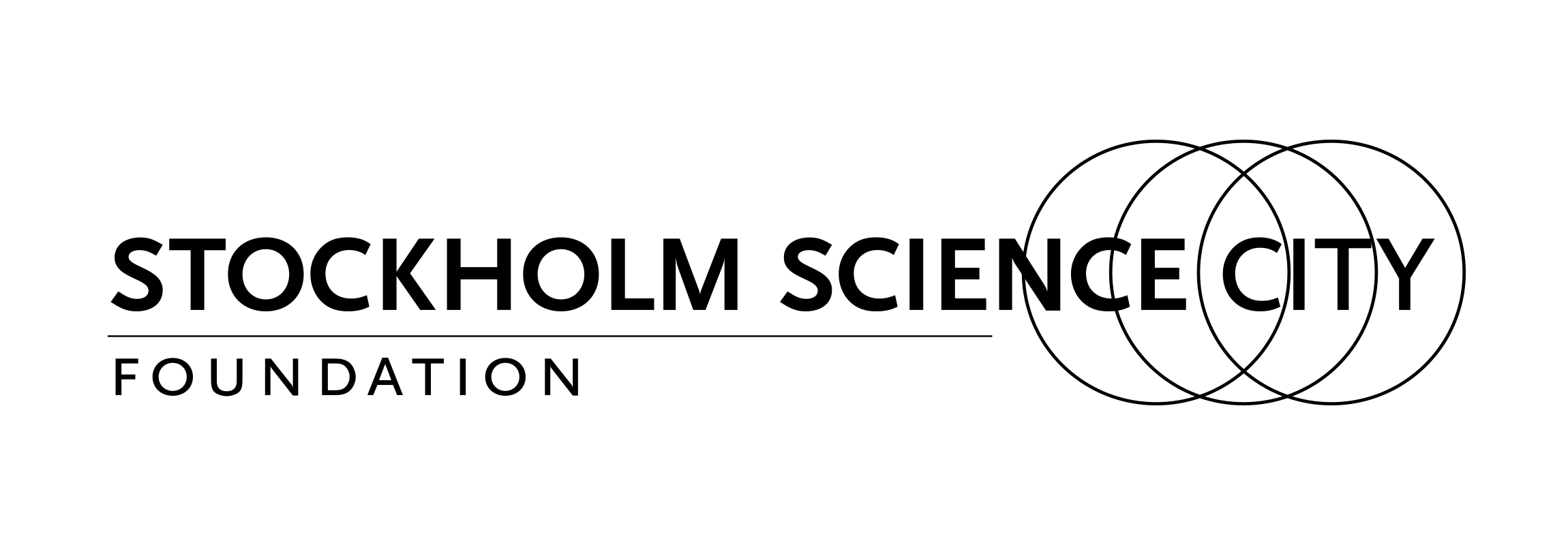
Monthly Sustainability Initiative
In the newsletter, we highlight the Monthly Sustainability Initiative, where different organisations in life science share their contributions to sustainability.
Below you can see the latest issues of the Monthly Sustainability Initiative. Inspire others with your sustainability efforts, email info@ssci.se and let us help you spread the word!
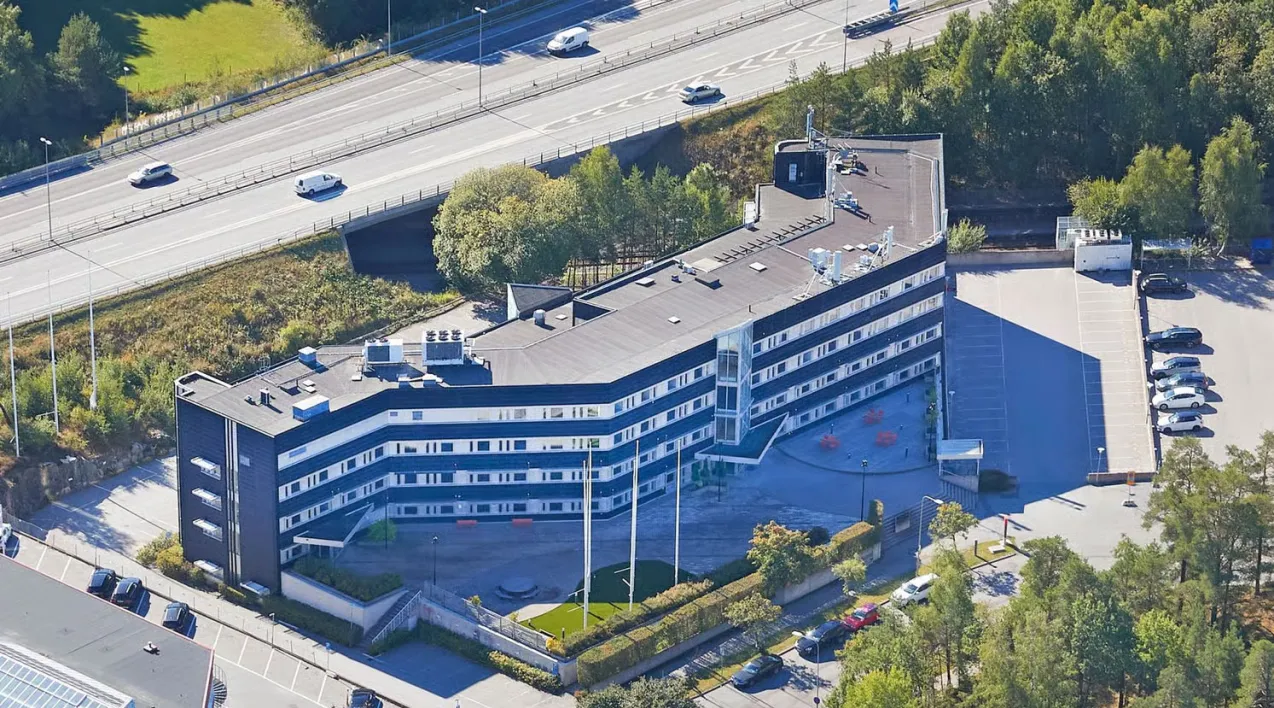
The reuse hub is a step toward a more sustainable construction industry
Together with the environmental services company Ragn-Sells, Castellum has opened a reuse hub in Kista — a place where property owners, construction companies, and other regional stakeholders can drop off, store, and collect building materials for reuse. The initiative also includes a modern e-commerce platform. “We need to collaborate to create volume and efficiency in reuse,” says Sven Stork, Regional CEO of Castellum Stockholm.
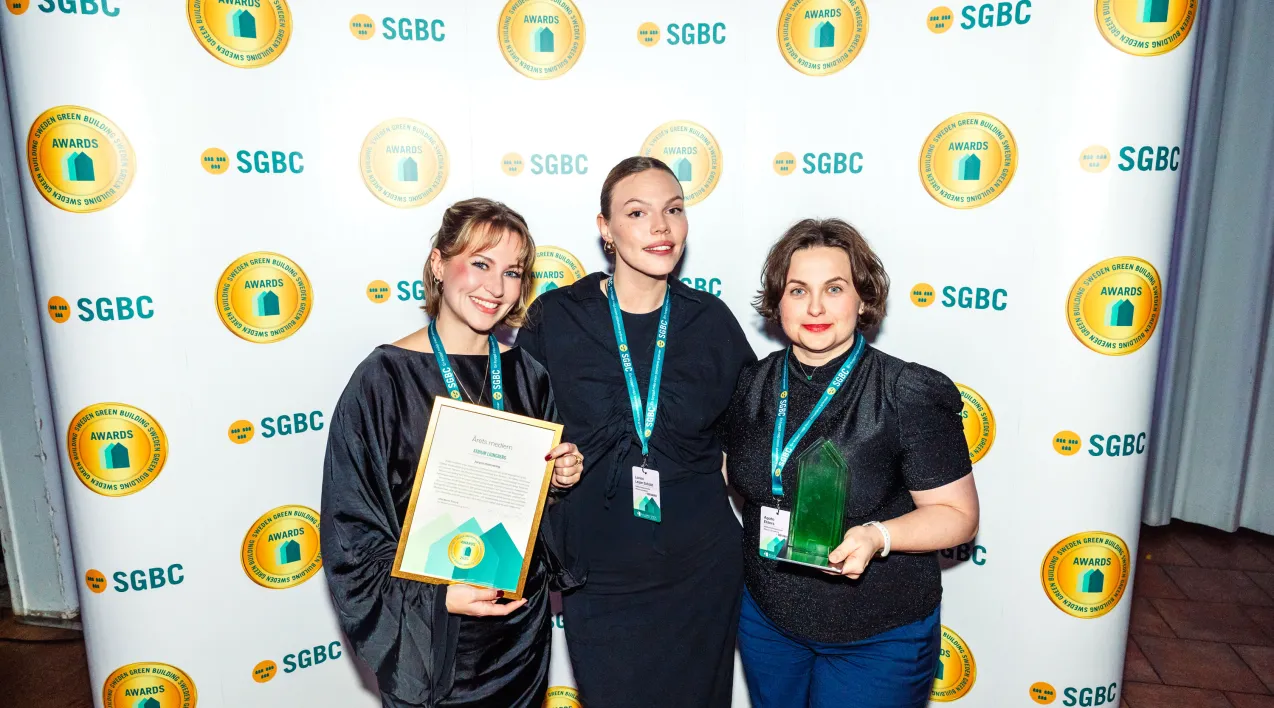
Member of the Year at the Swedish Green Building Awards: Atrium Ljungberg
The SGB Awards are presented annually to individuals and projects within the Swedish built environment sector that inspire and lead the way in sustainability. The jury highlights the company’s courage to challenge established ways of working, as well as its holistic perspective, in which social and environmental responsibility is combined with long-term development. By driving innovation and inspiring broader collaboration, the company’s sustainability efforts have had a clear impact and have advanced progress within the industry.
In the photo: Elin Rambäck, Lovisa Leijon Schöld and Agata Ehlers from the sustainability department at Atrium Ljungberg.
Sustainability in the medtech industry
The medical technology industry is taking sustainability issues seriously, as evidenced at this year’s Swedish Medtech Summit!
This year, the conference focused entirely on sustainability. It offered a broad range of related topics, including competitiveness, circularity, ESG strategy, regulations, procurement, reporting, transportation, AI, plastic recycling, global shifts, and value chains.
The industry’s growing sustainability ambitions were clearly demonstrated, not least through the member survey presented by Stena Circular Consulting. The survey also clearly highlighted where the most significant challenges and obstacles lie — primarily related to regulations and procurement.
Swedish Medtech plans to share more results from the member survey soon.

Locum is systematically advancing its sustainability efforts to ensure successful long-term development.
Locum manages and develops two million square meters of healthcare properties on behalf of Region Stockholm. Through commitment, expertise, and collaboration, they provide the county’s healthcare services and residents with functional and sustainable care environments.
– The results in the 2024 Sustainability Report show that the work is paying off and that we are achieving our goals, says Petra Hansson, Head of Sustainability Unit, and continues:
– We continue developing our sustainability efforts. We continuously analyse the organisation’s impact, stakeholder needs, and the gaps between our current and desired position. Sustainability initiatives are prioritised based on where they create the greatest benefit, while taking taxpayers’ money into consideration.
Photo of Petra Hansson, and Södersjukhuset, by Locum AB.
To Locum's sustainability website
Locum's sustainability report 2024
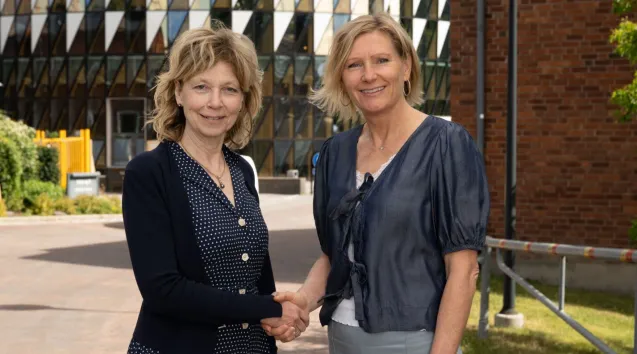
KI and Akademiska Hus signed new sustainability agreement
The agreement contains a cooperation model with regular follow-ups and opportunities for staff and students to become involved, creating more favourable conditions for lasting, systematic sustainability efforts. Photo: Stefan Zimmerman.
KI and Akademiska Hus deepen their partnership for a sustainable campus
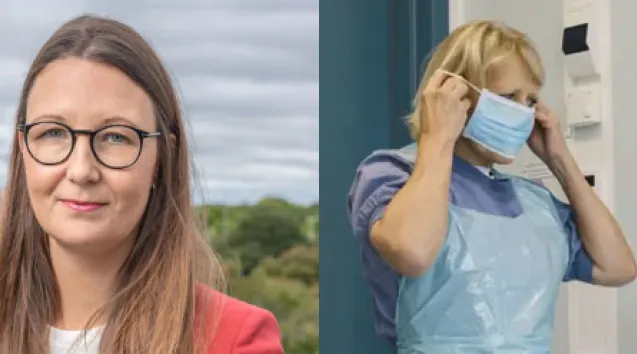
Circular plastic aprons at emergency hospitals
– Region Stockholm integrates sustainability into all operations, aiming for climate neutrality by 2035. We have high ambitions when it comes to sustainable public procurement, invest in green transport, and promote circular solutions — such as introducing circular plastic aprons at all emergency hospitals, says Carolina Pettersson, Sustainability Director, Region Stockholm.
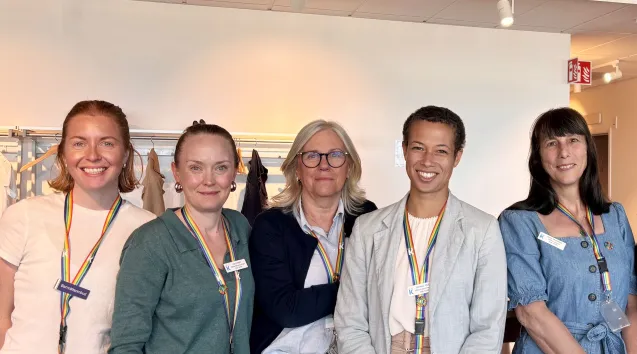
Sustainable advances at Karolinska University Hospital
The healthcare sector is vital in tackling climate change and inequality, needing systemic transformation for a sustainable future. Karolinska University Hospital, with its long-standing commitment, is a leader in Sweden for advancing social, environmental, and economic sustainability. Discover six examples of the hospital's sustainability efforts.
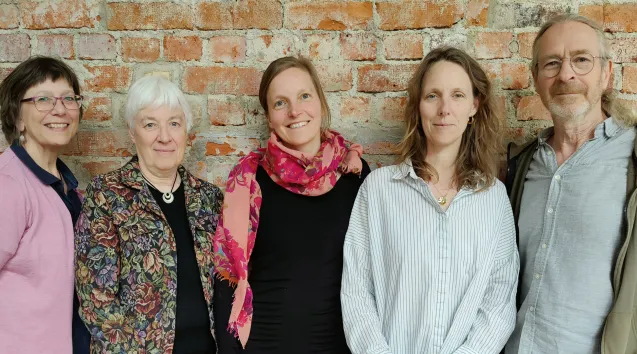
Teaching science and technology in the Anthropocene era
The needs of the world are changing as questions about sustainable development become more urgent — but is our teaching in higher education developing? We have been working on a creative and innovative higher education pedagogical development project where teachers at Stockholm University (SU), and KTH Royal Institutet of Technology are testing new perspectives and ways of teaching.
Developing learning environments
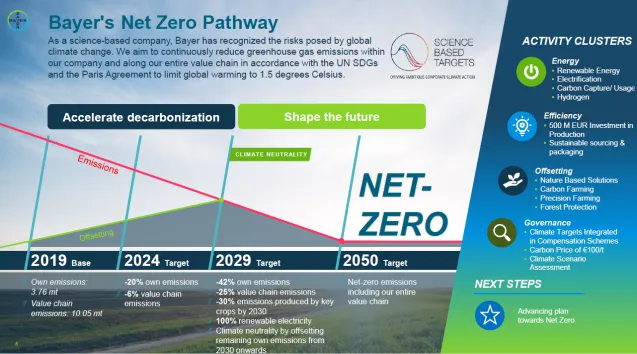
Bayer's work on sustainability
To strengthen its climate and environmental efforts, Bayer commissioned Swedish Environmental Research Institute to conduct pilot studies on emissions from pharmaceutical production—an area where data is often lacking. Bayer has also developed its own method for calculating Product Carbon Footprint through the initiative Together for Sustainability.
The gold standard PCF Guideline - TFS Initiative

Enhancing preparedness, sustainability, and competitiveness through meals
With funding from Formas, the new research centre PLATE at Stockholm University will address that question and engage in collaboration with a range of societal actors from across Sweden.
– Meals are central to the food system and bring together a wide range of elements and actors, from production to consumption, said Line Gordon, Director of the Stockholm Resilience Centre at Stockholm University, where PLATE will be hosted.
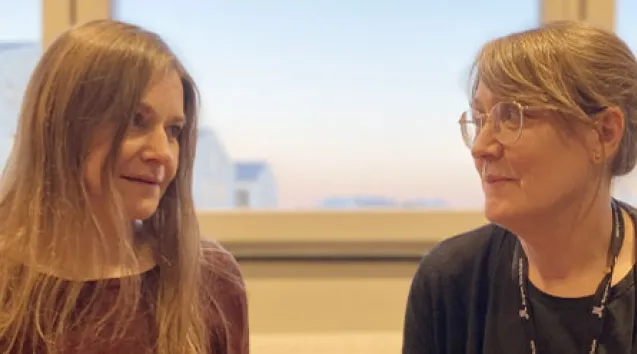
Collaboration Karolinska Institutet - Södertälje Hospital
"A lot is being done, but we can do more"
Karolinska Institutet and Södertälje Hospital are collaborating on a research project to reduce hospital emissions. Researchers have conducted interviews, developed insights based on the analysis, and held a series of workshops with managers and staff members who have generated ideas and proposed solutions to reduce emissions. Preliminary results, for example, show a need to concretise and visualise the effects of climate actions at the hospital.
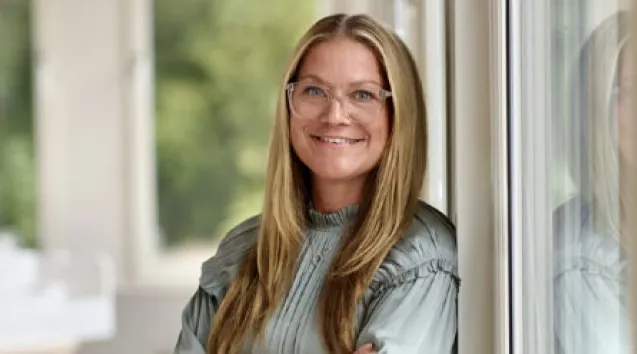
Fabege - The Nordic region's most sustainable real estate company*
– We are first to launch a full-scale reuse hub, and to share knowledge and experience, we have welcomed around 1,300 visitors so far, explains Mia Häggström, Head of Sustainability.
– At Fabege, we create sustainable offices, workplaces, and environments where people feel good and perform better. Our goal is to create enjoyable workspaces that make our customers eager to come to the office. Sustainability is part of our daily operations, and in the transition to a low-carbon economy, we challenge ourselves with reuse, creativity, and innovation.
* Fabege maintains its top GRESB ranking
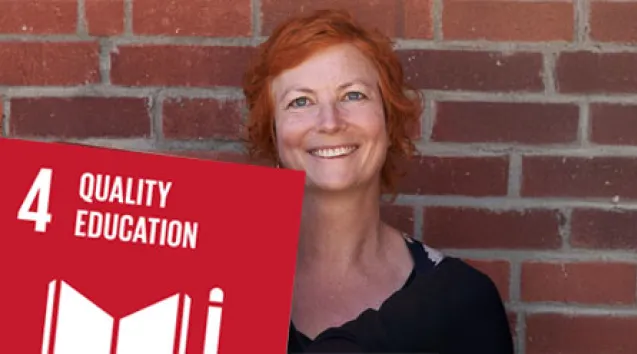
Integration of sustainable development in education
Karolinska Institutet (KI) has committed to providing health professionals with knowledge and skills to promote sustainable development. A key group in achieving this is our teachers.
– We conducted a focus group study to explore teachers’ perceived preconditions for the task and what support they need. Based on the study’s results, we are now developing educational support to be pilot-tested in autumn 2025, explains Sara Widén, Psychologist.
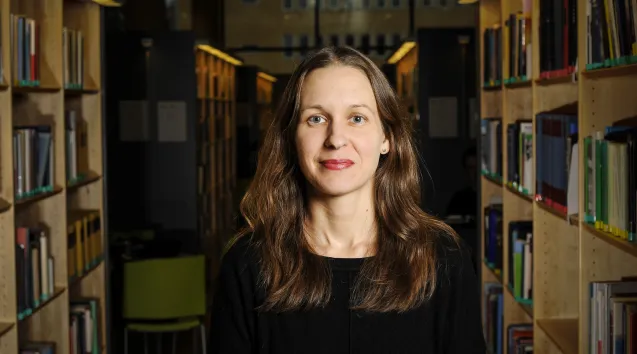
Stockholm University and The Royal Dramatic Theatre cooperate on sustainability
The Swedish Royal Dramatic Theatre and Stockholm University are collaborating on an EU-funded project that aims to rethink the way the performing arts engage with sustainability.
– The project focuses on finding new pathways to sustainability in the theatre through doughnut economics and co-creative processes, such as workshops and open labs. These are based on the need for increased sustainability in theatre, such as the circularity of plastics and chemical risks in hair and make-up, says Natasja Börjeson, Post Doc Dept. Environmental Science.
How STAGES is transforming theatre’s environmental footprint
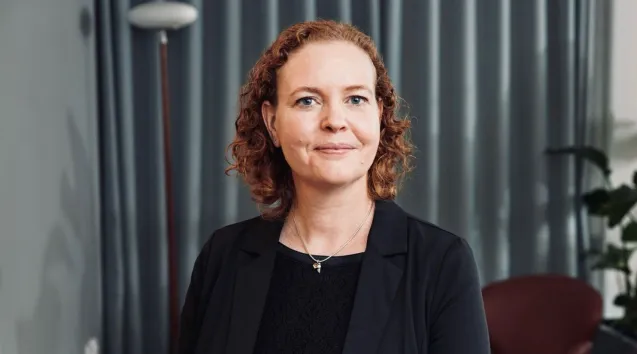
Humlegården, how do you work with sustainability?
Humlegården is a long-term owner that operates and develops office premises in Stockholm, where Hagastaden is one of our key areas. We want to create sustainable and attractive work environments.
– One of our main targets is to reduce our climate impact by striving towards a circular economy. Our strategy, The Circular Principles, helps us to minimise our use of resources and reduce our climate impact", says Sabina Jonestrand, Head of Sustainability at Humlegården.

KTH, how do you work with sustainability?
KTH has defaulted to WWF's One Planet Plate for food at all meetings to reduce the university's climate footprint per meal. This is part of KTH's sustainability efforts, which aim to integrate sustainability into everyday life and maintain credibility as a leading institution in sustainable development. This limits greenhouse gas emissions, promotes organic and plant-based options, boosts health, and preserves freedom of choice while taking an important step towards fulfilling KTH's climate goals.


